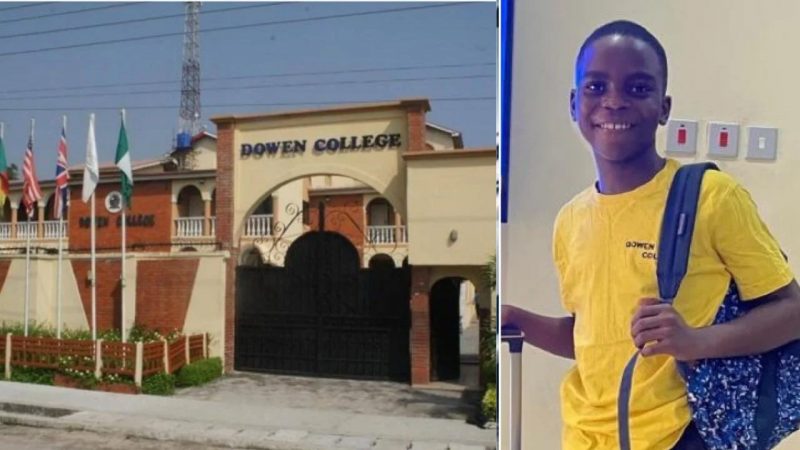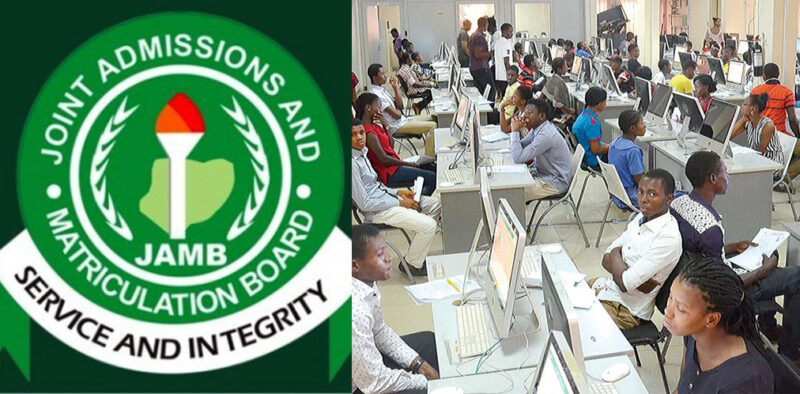Education
Agreement reached with ASUU, others, strike ends soon –FG

The Federal Government has expressed optimism that the decisions reached in its three-part meeting with university-based unions would yield fruits next week.
The Head, Press and Public Relations in the Ministry of Labour and Employment, Mr Olajide Oshundun, in a statement on Friday, said some agreements had been reached between the government and the unions.
The Academic Staff Union of Universities, the Senior Staff Association of Nigerian Universities, the Non-Academic Staff Union, and the Association of Academic Technologists are currently on strike.
The unions embarked on strike actions while demanding improved welfare packages, better working conditions and implementation of various labour agreements signed with the Federal Government between 2009 and 2015.
The Minister of Labour and Employment, Senator Chris Ngige said, “We had a cordial and fruitful discussion; we looked at the issues dispassionately and reached some agreements, to the satisfaction of everybody in attendance.”
Ngige said the meeting was moved out of the labour ministry because government involved some interested parties in a bid to resolve the dispute with the unions.
READ ALSO:
- Blasphemy: Buhari, CAN, NASFAT Condemn Killing Of Student
- As Ngige, Malami withdraw resignation letters, Falana warns cabinet return not automatic
- Elon Musk puts $44bn Twitter takeover deal on hold
The parties were the Chief of Staff to the President and Chairman of the three-part meeting, Prof. Ibrahim Gambari, the Chairman of the Nigeria Inter-Religious Council, the Sultan of Sokoto, Alhaji Sa’ad Abubakar III, and the President of the Christian Association of Nigeria and co-chair of NIREC, Rev. Sampson Ayokunle.
The negotiation team also had the Ministers of Labour, Finance, Education, ASUU leaders, and other stakeholders.
The Minister of Labour said, “We discussed. Everybody was happy. We reached some agreements, and we hope that by next week those agreements will start maturing.
“The four unions will also go and brief their members so that they can call off the strike.”
The minister said the issues in the 2009 agreement, such as the renegotiation of the condition of service and the wage review could be concluded next week.
In his remarks, Gambari lamented that the perennial problems in the universities had culminated in the mutilation of the nation’s educational calendar.
He urged ASUU to return to the classrooms while negotiations were ongoing, to avoid violence by students who had begun blocking roads and airports in protest of the prolonged strike.
He gave the assurance that the President, Major General Muhammadu Buhari (retd.), was determined to put an end to the negative developments in the nation’s tertiary institutions.
“We need predictable and quality education so that the human capital required to move our country forward will be developed consistently,” Gambari said.
Ayokunle, on his part, also appealed to the unions to return to work in the interest of the children and the nation.
The ASUU President, Prof. Emmanuel Osodeke, urged the government to give quality attention to education, saying all the problems in the sector could be amicably resolved if the government does the needful soon.
Meanwhile, students of the Obafemi Awolowo University, Ile-Ife, under the aegis of the Great Ife Concerned Students in collaboration with the Fund Education Coalition protested against the protracted ASUU strike. They blocked major roads in Osun State, leading to gridlock.
The leader of protesters, Omowumi Abraham, said, “With our education, we are becoming a threat to those in government. They should fund education. In 2020, we were at home because of ASUU strike and coronavirus. There was a surge in the crime rate. They should not toy with our future. They should immediately reopen schools.”
READ ALSO:
- Elon Musk puts $44bn Twitter takeover deal on hold
- Buhari Bids Farewell To 10 Ministers, Promises To Replace Them Soon
- Ex-lover: Nobody said anything when Nkechi Blessing called me a 2-minute man
In a similar vein, students of Adekunle Ajasin University Akungba-Akoko, on Friday, also took to the streets protesting against the strike.
Speaking during the protest, President of the Students’ Union Government, Kolade Ogunsanmi, said “We, Nigerian students, Adekunle Ajasin University students, are on the street of Akungba to express our displeasure to the Federal Government and in no distant time, the government should answer ASUU so that our universities can reopen.”
The Vice President of the Students’ Union, Kemisola Salami said, “Our education is being truncated; we are tired of sitting at home with no job; we are using this medium to plead with Federal Government to meet with ASUU and end the strike.”
In Imo State, university undergraduates also staged a protest on Friday against the lingering ASUU strike.
The Senate President of the National Association of Imo State Students, Alfred Jacinta, said, “We are giving them seven days to resolve their issues, else we will block all the major roads until our demands are met.
“We are not asking for too much. We are only asking that we should be allowed to complete our academic programmes. It is a time for us to say enough is enough and take our destinies in our hands.”
Meanwhile, the Oluwo of Iwo, Oba Abdulrosheed Akanbi, has appealed to the Federal Government and the striking ASUU members to resolve their differences to protect the future of Nigerian students.
Oba Akanbi made the call in a statement by his Press Secretary, Alli Ibraheem, on Friday.
The monarch said, “The security fragility of the nation calls for rigid handling of the educational sector. Failure to do so will unavoidably magnify the tense security challenge in the nation. I extend my appeal to the ASUU to prioritise students’ interest and be soft in their demand from the Federal Government.”
PUNCH
Education
22 Zamfara varsity students, staff members released after six months in captivity

22 Zamfara varsity students, staff members released after six months in captivity
Twenty-two abducted students and staff members of the Federal University Gusau, Zamfara State, have finally been released after six months in captivity.
The victims, comprising 15 students and seven workers of the university, were abducted from the university in September 2023.
They were received on Monday April 15 in Abuja by the National Security Adviser, Nuhu Ribadu.
The captives were released in three batches, with the last batch returning home on Sunday April 14.
Ribadu said the rescue operation was coordinated by the National Counter-Terrorism Centre.
He urged them not to allow their experience to break them, but should rather make them stronger.
He said, “On behalf of the President, I thank all those involved in the successful rescue of the victims without losing anyone of them or paying any ransom.
“This is yet again a success story in our efforts to free all those being unlawfully held in captivity.
“We have so far released over a thousand of such victims without noise and with complete respect to their privacy and safety.
“This occasion marks a final juncture in a series of rescues we have undertaken in the last few months, to free victims of recent cases of mass abductions.
“Going forward, we are strengthening law enforcement and security measures to prevent these abductions, and strengthen physical security across vulnerable communities.”
National Coordinator, NCTC, Maj.-Gen. Adamu Laka, recalled that those rescued were abducted from the school on September 22, 2023, at about 0230hrs.
He said the bandits armed with various weapons attacked three off-campus students’ hostels at Sabon Gida in Gusau and kidnapped a number of female students alongside some male artisans.
Others, he said, were a private security guard and a protocol officer of the university.
He added that the bandits ransacked the hostels, and carted away foodstuffs, mobile phones, laptops, ATM cards, cash and other valuables.
According to him, the abductees were subsequently herded on motorcycles and foot to a location through a town in the Tsafe Local Government Area of Zamfara.
Laka said, “Search and rescue was conducted by a combined team of law enforcement agencies and the abductees were subsequently released in three batches, after 207 days in captivity.
“The first batch was rescued on March 15 while the second batch was rescued on April 12 and the last batch was rescued on April 14.
“All the abductees were profiled at the NCTC while the ONSA Medical Team examined them and administered minor treatments on the bruises sustained by 3 of the abductees.”
Education
Oromoni’s death natural but avoidable, coroner rules

Oromoni’s death natural but avoidable, coroner rules
Sylvester Oromoni died of a natural cause and not due to any action by his school, Down College, or accused five students of the college.
This is the verdict of a coroner, Mikhail Kadiri, who presided over the matter on Monday during a seven-hour magistrate court sitting in Ogba, Lagos.
The judgement coming after a two-year inquiry, affirmed that the 12-year-old died of sepsis emanating from an infection of the lungs and kidney due to an ankle injury.
The coroner however said his death was an avoidable case of parents and medical team’s negligence.
Sylvester Oromoni Junior who was a student of Dowen College in Lekki, Lagos, died on November 30, 2021.
The coroner cleared the five students of the college accused in the case, ruling that they played no part in the death of Sylvester and should not have been involved in the matter.
He also advised parents not to take their children’s health with levity.
The magistrate also called for better cooperation between the police and medical team and that the police must exercise caution before making arrests in the future.
Education
2024 UTME: What students need to do before, during JAMB exam

2024 UTME: What students need to do before, during JAMB exam
The 2024 Joint Admissions Matriculation Board (JAMB)/Unified Tertiary Matriculation Examination (UTME) exam will hold between April 19th and 29th, 2024.
As a student planning to sit for JAMB/UTME exam, you should be done with the registration by now which was extended to April 11.
In this article, there are practical steps to follow before and during the UTME exam which will help you excel.
1. Know the cut-off mark
You should be aware of the required JAMB cut-off mark and choose the desired score for your respective course and school. To achieve a high score in JAMB, it is pertinent to determine the average JAMB cut-off mark needed for your desired course and institution.
This score can be determined from the normal JAMB cut-off mark for JAMB (140), which will qualify you for post-UTME and merit admission. It is essential to research and write down this average score to determine the minimum mark you should work towards.
Knowing this would help you to put your mind into the exam by setting clear goals for yourself that you want to meet the cut-off mark for JAMB or surpass it.
For example, if you want to study mass communication, and target 320 in JAMB, you can accomplish that by setting your mind on scoring 80 in English, 80 in Litertaure-in-English, 90 in Government, and 70 in CRK/IRK depending on your subject.
2. Have a study plan and reading timetable
Another practical guide to help you excel as a student sitting for UTME is to improve your learning by creating a study plan and reading timetable for yourself.
READ ALSO:
- Naira could trade below ₦1,000/$ – Goldman Sachs
- How I helped Emefiele pick $3m cash – Former dispatch rider
- Why seven APC members of Plateau assembly weren’t sworn in – Speaker
This will help you manage your time effectively and efficiently as a student. You must reflect on previous performances and methods of preparation for different subjects. You must know your strengths and weaknesses in all subjects, and devote appropriate time for them to have success.
Make a time chart of your present activities and record details about your daily routine, including when you get up, go to bed, do your chores, work, and go out, to help you design a customised study plan.
3. Go through JAMB past questions
It is essential that you go through JAMB past questions to help you familiarise yourself with the patterns in order to study efficiently. Since objective questions can be determined from the provided alternatives, they are simpler to prepare for.
As a student writing UTME, you must understand the typical formats in which they pose questions. This might assist in determining where to concentrate more, for instance, if JAMB has assigned more questions in courses like physics or chemistry that involve calculation than theory.
Geometry, trigonometry, statistics, matrices, and differentiation are among the topics covered most frequently in mathematics, according to computer analysis of previous problems. Lexicography and structural questions are more prevalent in English language classes, whereas organic compound questions consistently rank well in chemistry classes.
You must know all these patterns by going through JAMB past questions for at least the last 15 editions.
4. Study according to the JAMB syllabus
It is expedient to know that studying according to the JAMB syllabus is one the best practical steps to help you excel in writing UTME. Every exam has a specific topic, and the examiners anticipate that candidates will be familiar with relevant material.
Examiners ask forty questions on each topic, except for sixty in the English Language. Use exam-focused texts and previous question research methods under the JAMB syllabus to maximise your study time.
5. Solve at least 10 years of JAMB past questions
To succeed in the JAMB exam, you must study the syllabus several times, modify your study schedule according to the period you have left, and be dedicated to excellent studying.
Since JAMB has been administering exams since the 1970s, its question bank ought to have run out by now. Having known this, you will succeed in the exam by reviewing and solving at least 10 years past questions as you prepare.
In achieving this, use reliable sample questions, read textbooks and past questions, and make sure you understand the questions’ solutions if you want to succeed. You must concentrate on understanding the answers to the questions and consult textbooks for any questions you are unsure of.
6. Practice at least one timed JAMB CBT Software test daily for two weeks before the exam
A timed test lets you practice your accuracy and speed and is comparable to the actual JAMB exam. To get ready, choose a previous year and complete four topics’ worth of JAMB prior questions. Try to finish in the two hours that JAMB allocates for the exam. It would be an advantage for you if you select years that you have not experienced.
7. Be mentally fit for the exam
The most important thing you have to be sure of is being mentally ready for the JAMB exam.
You should shrug off all stress and doubts, and wear confidence as you prepare for the UTME exam.
See yourself as confident, well-prepared, and successful as you play out the exam scenario in your head. This can be accomplished by finding a peaceful area, closing your eyes, and acting out the entire exam day, from arriving at the exam center to gathering your materials, writing the exam, and departing.
Breathe deeply and slowly while listening to it in your head until you feel at ease. This is an optional step, but the only reason to do it is to prepare your mind to take the exam with composure when it comes around. This aids in confidence-building and stress management as tests get closer.
Finally, make sure you have all the writing materials for your JAMB UTME ready. If possible, do not use them for preparations, but make sure you have tested them to ascertain they are in good shape. Also, it will be advisable if you have spare materials to make everything double.
2024 UTME: What students need to do before, during JAMB exam
Vanguard
-

 Sports7 days ago
Sports7 days agoKane’s three children involved in car crash, hospitalised
-

 News5 days ago
News5 days agoFG gives update on where fleeing Binance executive is hiding
-

 Entertainment6 days ago
Entertainment6 days agoTolani Baj expresses love for Bobrisky
-

 metro6 days ago
metro6 days agoTroops neutralise 188 terrorists, rescue 133 hostages in assault operations
-

 metro5 days ago
metro5 days agoViral video: Edo CP orders trial of officer threatening people with gun
-

 News5 days ago
News5 days agoNLC, TUC jointly propose N615,000 new minimum wage
-

 News7 days ago
News7 days agoNew electricity tariff may drop if naira rebounds further – Adelabu
-

 metro7 days ago
metro7 days agoBreaking: Bobrisky sentenced to six months imprisonment without option of fine




















